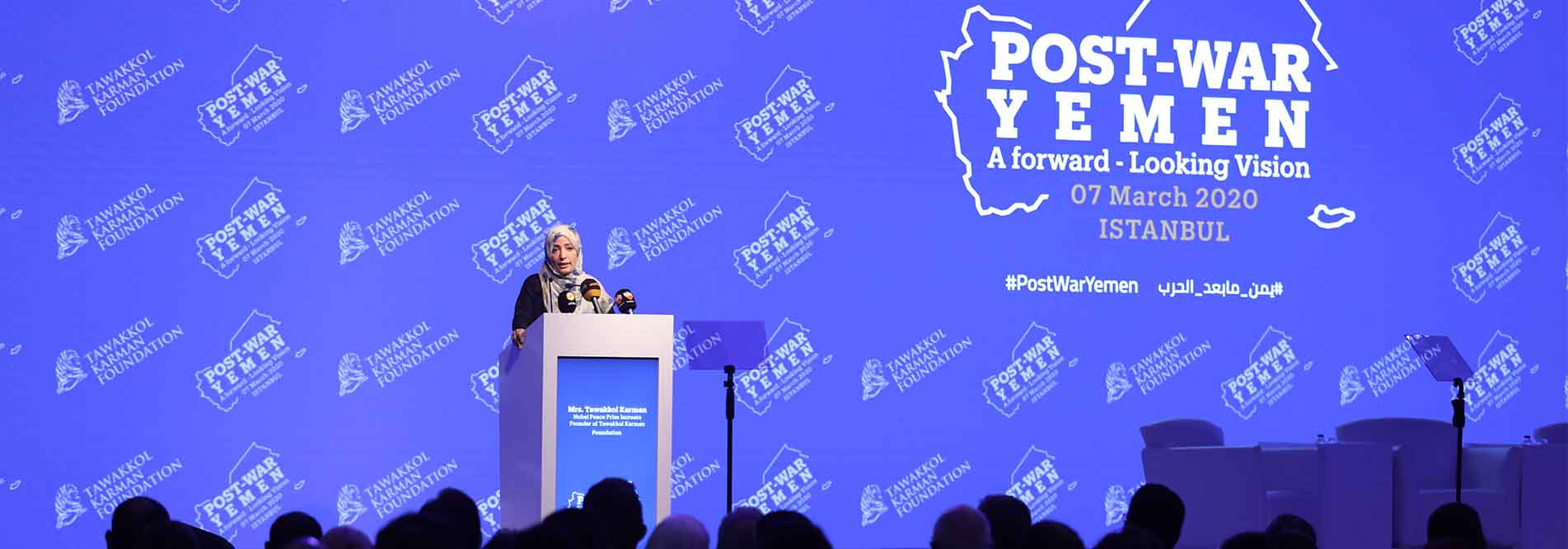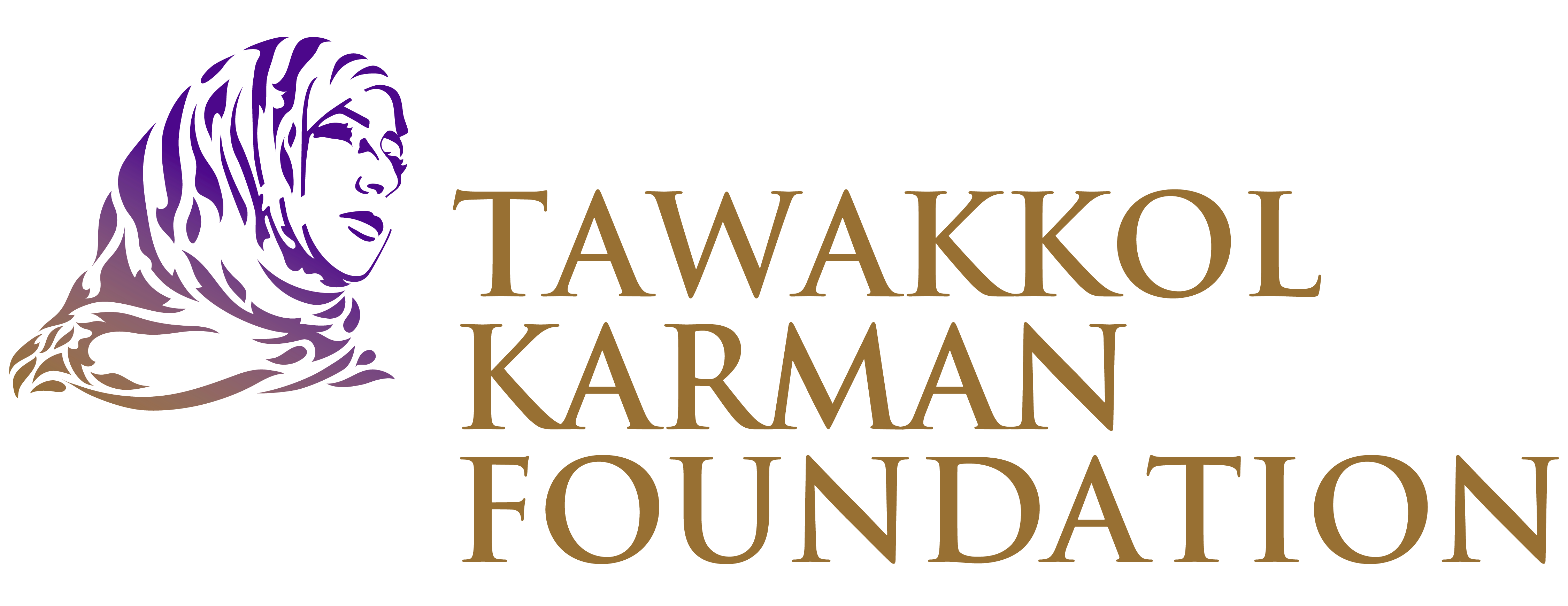Articles

Post War Yemen Conference
The Nobel Peace Prize winner, Tawakkol Karman, called on different Yemeni forces on the field of militants, governors, and forces of resistance to announce an internal field command that is tasked with liberating Yemen from the militia and from guardianship and occupation.
This came during a conference organized by the Tawakkol Karman Foundation in Istanbul, under the title of "Post-War Yemen..A forward-Looking Vision" on the 7th of March, 2020, where a number of Yemeni, Arab and foreign intellectuals, researchers and activists participated.
Karman added that there is a power vacuum in the government and that regulations written by the Saudi ambassador and signed by Hadi and his prime minister don’t represent Yemen nor its legitimacy, reaffirming that President Hadi is impotent, detained, and lack the freedom of will.
Karman said that stopping the war in Yemen is only one of the steps towards building a real and sustainable peace, demanding Saudi Arabia to provide guarantees to lift its guardianship from Yemen and to commit to building what was destroyed by the war that Saudi was part of.
She said that partial agreements prolong the war and take away the basic Yemeni issue, stressing that Yemen is resistant to the imamate and to partition, and will not yield to the guardianship of Saudi Arabia and the UAE.
Karman said that the war doesn’t end by making deals between warlords who don’t care about making Yemen one, strong, sovereign state and that the Houthi militia started the war, and they aren’t showing any acceptance to peace or the other, calling on the international community to put pressure on it to return to the political track.
On her part, Tuba Arjan, deputy head of foreign relations of the Turkish Justice and Development Party confirmed Turkey's support for the sovereign unified Yemeni state and pointed out that Turkey is keen to mitigate the severity of the humanitarian crisis under which millions of Yemeni people live.
The conference, organized by the Foundation, included three sessions. In the first session, the participants discussed possible scenarios for the end of the war, the shape of the state, and the system of government in light of the imagined end of the existing conflict. This seminar witnessed the participation of Ahmad Al-Sayyad, former Yemen's ambassador to UNESCO, and Ibrahim ِAl-Qatabi, Activist and political analyst, and J.E Peterson, a researcher in the Center for Middle Eastern Studies at the University of Arizona, and Marwan Al-Ghafori, Yemeni novelist and cardiologist.
The second session discussed "The future of regional and international influences in post-war Yemen”. The second session witnessed the participation of Ali Al-Absi, researcher and political analyst, and William Low, Arab Digest editor-in-Chief and former BBC correspondent, and Johnathan-Harvey, Journalist, conflict researcher and geopolitics, and Stephen W. Day, Professor of international affairs at Lawrence University.
The third session discussed "Post-War Priorities ... Transitional Justice as an Entry to End the Conflict and Reconstruction between Political and Legal Responsibility", The third session witnessed the participation of Abbas Urwa, Physics Professor and founder of Qurtuba Institute for peace in Geneva, and Franck Mermier, Senior Researcher at the French National Center for Research, and Jamila Ubaid, Yemeni journalist specialized in economy, and Muhammad Al-Musfer, diplomate and professor in political science at Qatar University.
Sessions were enriched with many discussions and raised many questions about how to stop the war, get out of the current situation, move to the phase of the modern Yemeni state, and reconstruct what was destroyed by five years of war.
See Post War Yemen..A forward-Looking Vision Conference Photos
